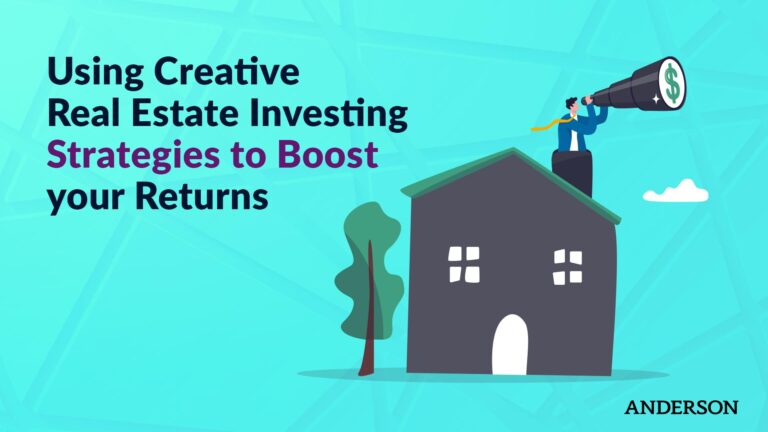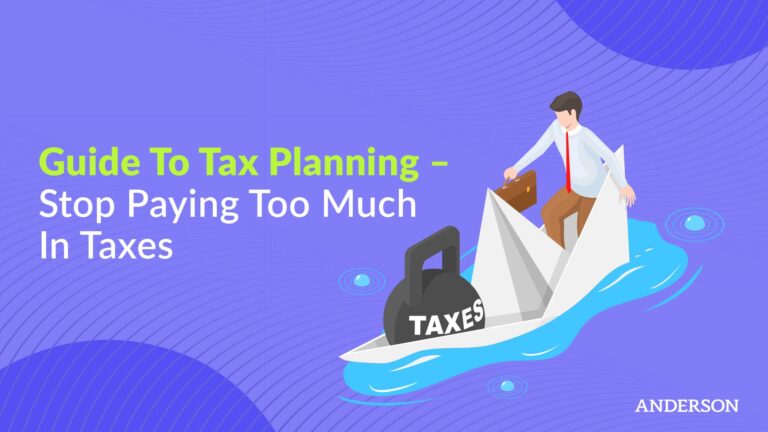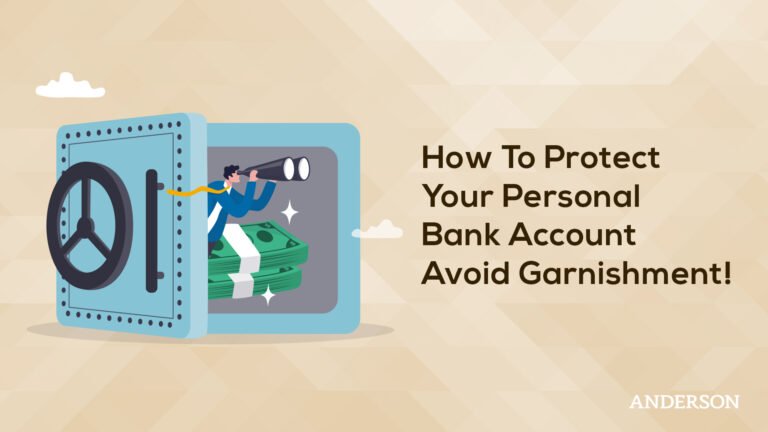Updated October 1, 2021
There’s no secret about it. Done correctly, real estate is one of the best ways to generate solid cash flow. However, beginner investors will inevitably run up against a lack of experience and knowledge — but don’t let that scare you away from getting into the game. Here are a few things you need to keep in mind about real estate investing for beginners.
Real Estate Investing for Beginners: 6 Things to Know
- Why Real Estate is a Solid Investment
- How You’ll Make Money in Real Estate
- The Pros and Cons of Renting
- The Pros and Cons of Flipping
- How You’ll Finance Your Property
- Tips to Get Started
“You should buy land … they’re not making any more of it.”
This humorous quote by Mark Twain accurately captures the idea of supply and demand, a business basic. It just so happens that land comes in a fixed supply, and it’s in high demand — so if you can get your hands on some, you can make a good profit.
1. Why Real Estate is a Solid Investment
There are many benefits to investing in real estate, but in order to highlight those benefits, let’s mention some other vehicles for asset investment.
Everyone knows about stocks—which essentially involves purchasing a share of a company and reaping a portion of its profits. Unfortunately, stocks are very volatile and almost entirely impossible to predict. Then there’s also the option to invest in a startup, which is perhaps even riskier.
By contrast, real estate is a solid investment. It exists in perpetuity, unlike a stock or company that can fold and take all your money with it. Though the internet and the news tend to exaggerate and sensationalize changes in the market, for the most part, real estate is statistically a far more stable investment than stocks, with consistent returns.
You can invest in real estate for profit (by buying and selling it) or hold on to it and make income by turning it into a rental. In both cases, even though the market around you will fluctuate (albeit with much more stability than stocks), you have a larger amount of control because the property is yours.
2. How You’ll Make Money in Real Estate
There are basically two ways you can make money in real estate: renting and flipping. Within each of those two categories, there are some more nuanced options which include several ways to invest:
- Single-Family Homes
- Multi-Family and Owner-Occupied Properties
- Commercial Properties
- Vacation Rentals
- Options Contracts
- Fixer-Uppers
- Foreclosures
- REITs
Single-Family Homes
A single-family home might be the easiest way for first-timers to get their feet wet. You have one property, one renter (or at least one party), one contract, and limited maintenance. While it might give you more peace of mind to turn property management over to a third party, you don’t have to if you don’t want to — your portfolio may be small enough to manage yourself. Since most people will have to develop experience navigating the world of residential real estate for their own living accommodations, it can be a simple place to start for property investing.
Multi-Family Real Estate
Multi-family real estate presents investors with a larger rental opportunity. Anything four units and under is usually still considered a private residence, and you could catch a tax break or special perks and financing if you live in one of the units—an owner-occupied rental property. That said, a duplex, triplex, or quadplex is a great investment for beginners. You can live in one unit and rent out the other three, keeping a close eye on the property while having enough income to turn over management to a third party, if desired.
Commercial Properties
Commercial properties may not be the best option for a first-time investor, but of course, that’s ultimately up to each person and their comfort level. Any residence with more than four units will be considered a commercial building (like an apartment complex), and you will need commercial financing to obtain it. You will probably have to turn over property management to a third party; otherwise, you’ll be overwhelmed. Other types of commercial property include malls, offices, and shopping centers — but because of the complexity involved in managing these property-types, first-time investors may not want to start here. Ultimately, however, once you’ve gotten some experience, you may decide that commercial real estate investing will yield more lucrative possibilities.
Vacation Rentals
Vacation rentals or short-term rentals are a great way to maximize a second residence, such as a beach house or cabin in the woods. These days, there are a number of sites and platforms that allow you to rent out your space. Listing properties as Airbnb rentals, for example, can turn an empty liability (namely, a property you’re not occupying) into a lucrative rental. If you decide to go this route and do not yet have a second home, you’ll want to do some thorough research on the area, it’s safety, and its proximity to desired attractions.

Options Contracts
Options contracts are actually a unique and easy way to get into the real estate game, but they usually require the guidance of a competent lawyer or professional advisor. Essentially, you attempt to purchase a home by offering the owner a contract that can optionally be exercised within a certain amount of time. In practical terms, for example, you might offer them a deposit that grants you exclusive rights to buy their home within the next 6 months. You then go out and find a buyer for the home, who will, of course, pay you a higher price than you’re paying the original owner. In common parlance, some call this a strategy that leverages “OPM,” or “other people’s money.”
Remodeling
Remodeling involves buying a home that needs some work or working on a property you already own. Whether you’re putting in a new kitchen and bathrooms, or just doing some light cosmetic work, your goal is to transform the property, amplify its curb appeal, and increase its value, so you can make a profit by reselling it or making it a more expensive rental. Many people find this particular form of investing to be very rewarding, especially if they have a crafty or artistic sensibility and enjoy watching the transformation of the property.
Foreclosures
Foreclosures are homes that have been taken from the owner due to their inability to pay their mortgage. Some people may feel uncomfortable about getting involved with this type of real estate, but it’s perfectly legal and, moreover, you are not taking the home from the person because the bank (their mortgagor) has already done that. Foreclosures often require some serious work due to neglect, so first-time investors will want to make sure they have a competent real estate agent guiding them through this process and selecting properties with potential; otherwise, they put themselves at risk.
Real Estate Investment Trusts (REITs)
Real estate investment trusts are sort of like a halfway point between stocks and real estate. Some REITs can be traded like stocks, while others, like non-traded REITs, are not traded on an exchange. If you can’t afford to buy or finance a property, or you aren’t ready yet to take the plunge, you can buy a share in a property or company that owns properties. This is perhaps the easiest way to get into real estate, and you can pick what type of REIT you want (sort of like stocks or mutual funds). Even better, the REIT may pay out its taxable revenue as dividends. Some REITs may be established extant (already existing) companies, while others might be looking to expand their business with some real estate crowdfunding; joining the crowd can be a great way to get your foot in the door.
As we mentioned, each investment strategy essentially falls into one of two categories: renting or flipping. Different investors have their own favorite playbook, but you’ll have to figure out what’s best for you based on the pros and cons.
3. The Pros and Cons of Renting
Renting property can certainly be profitable, but it does come with its share of challenges.
Pros of Renting
Rental properties offer a stable and permanent piece of equity: your property. You don’t have to put your home on the market and hunt or hope for a buyer. It increases your net worth and provides an asset that can be used to secure loans for other business projects. Finally, once you have it paid off, any rental income is essentially unencumbered income.
Cons of Renting
Rental properties seem to be pretty stable. Money comes in every month, on the first of the month…right? Mostly right. In an ideal set of conditions, yes. But if you don’t have a renter, or if your renter pays late, you won’t feel that level of stability. Also, while you’re renting the property, you will have to manage it, taking care of any concerns that the renter brings up. Remember, it’s your responsibility to fix any problems with the property. Of course, if the renter causes damage, it’s not your fault — but it will still involve time, money, and stress to fix it. There are plenty of horror stories about what renters have done to a property, from stealing light fixtures to totally trashing the place on their way out. Another problem stems from the fact that it may take you years to recoup your investment (namely, the price of the property).
4. The Pros and Cons of Flipping
Some investors choose to flip homes and don’t want to get involved in rentals at all. As with rental investments, the business of flipping properties has both pros and cons.
Pros of Flipping
Between finding a renter, managing the property, and dealing with the stress of it all, many investors prefer to make some quick cash and move on to the next property. This is basically the primary appeal of flipping houses: you stand to make a decent amount of money in a lump sum upon selling the home.
Cons of Flipping
If your property lingers on the market too long, however, you may lose money. Transfer and capital gains taxes and fees can eat away at your profit, making a once lucrative deal appear much less appealing. For those who need to put work into the homes they flip, there’s also the need to manage a contracting team to make sure the job is getting done right — it often doesn’t pay to turn a blind eye and let them do as they will. Finally, by selling the home, you will not have the ability to collect rental income once the property is paid off.

5. How You’ll Finance Your Property
Before you can begin investing in real estate, you will need to develop a plan for financing. Fortunately, there are a few options. Of course, you will need money, but not necessarily a ton of money at once.
If you do have the requisite cash on hand, you can buy properties outright. There is much debate on whether or not this is a good idea, and in any case, it’s usually not a viable option for beginners. Many people won’t have this amount of cash on hand until later in life when they can start cashing out their self-directed IRAs. The good news is that you don’t have to wait until retirement to start investing.
Bank Loan
The most common way of financing properties is to secure a loan from a bank. Banks will typically want to see that you can afford a 20% down payment on the property and that you have the ongoing means to consistently pay for the rest. In the 2000s, lenders were freely giving out loans with little interest (no pun intended) in seeing whether or not people could pay them back.
This behavior led to a serious housing crisis, and part of the backlash has involved banks tightening their lending requirements. You’ll most likely need to show your mortgagor that you have a consistent work history with a decent salary, or that your business has yielded strong and consistent returns if you’re self-employed. Of course, you’ll also need an excellent credit score and history.
FHA Loan
If you don’t have enough saved up to put 20% down on a property, you can get a special mortgage facilitated (note: not offered but facilitated) by the government: an FHA loan. These loans typically allow you to put down as little as 3.5%, but in return, you’ll have a larger monthly payment due to a special type of mortgage insurance you’ll have to pay. These types of loans are also only provided for owners who will be residing on the property. This option is best for aspiring property owners who don’t have a lot of capital saved up, but who could afford a slightly larger monthly payment.
You can still bankroll a lucrative real estate investment with an FHA loan, even though the loan requires you to live on the property. For example, if you use it to buy a four-unit dwelling, you can live in one of the dwellings and rent out the other three — while only having put down 3.5%.
Additional Finance Options
If you’re looking at a commercial property that’s more than four units, or an office or retail complex, you’ll need a commercial loan, and that’s a whole different ball game.
There are some more offbeat ways to finance a property. One that we mentioned earlier essentially involved using other people’s money to lock the potential seller into an exclusive contract. Once that’s done, you take yourself out of the contract and put your buyer in your place. Cash out on the deal and repay your initial investors — this is called an options contract.
You could also explore the possibilities offered by real estate crowdfunding sites. Crowdfunding has really ballooned in recent years due to the accessibility of the internet. You can post your ideas on these crowdfunding venues and get contributions from all over the world. Don’t think that crowdfunding is just for charitable causes and sending your kids on a school trip — more and more businesses are eschewing traditional bank funding and getting grass-roots support.
6. Tips to Get Started
There are a few things you need to keep in mind during your journey to standing in the ranks of successful real estate investors.
Here are some quick and easy real estate investing tips to keep in mind:
- Do not view real estate as a get-rich-quick scheme
- Do not get frustrated if you’re only breaking even
- Understand what you’re doing and learn about it if you don’t
- Find a mentor and a community
- Protect your investments and yourself
Do not view real estate as a get-rich-quick scheme. Don’t be fooled by the term “passive income” — successful real estate investors know firsthand that real estate requires hard work, thoughtfulness, and planning. Above all, investing strategies require patience, whether you’re renting or flipping. Searching the market, navigating contracts, managing properties, remodeling, and selling the property all require work. There is nothing quick and easy about real estate, no matter what marketing gurus tell you. However, it is incredibly rewarding, stable, and lucrative.
Don’t get frustrated if you’re only breaking even. Breaking even is still a sign of success when it comes to real estate. If you’re renting a property, breaking even means that you still have the property in your hands, and you’re continuing to climb toward total outright ownership. Breaking even when flipping a property means you have money for the next one. Property values fall, but they also rise (and historically, overall, they tend to rise a lot more than they fall). That said, sooner or later, if you’re breaking even, you will be making money.
Understand what you’re doing and learn about it if you don’t. You will need to have a decent understanding of all the moving parts in the real estate game. You can’t just blindly buy houses and hope for the best. Knowing the local market helps you find good deals. Knowing the right local agents helps you negotiate for the best contracts. For example, if you plan on purchasing property in the San Bernardino area, find a local tax advisor who is familiar with San Bernardino property taxes. Working with an expert on real estate taxes will help you avoid serious profit losses that can come from capital gains taxes and property taxes.
Even though you will want to know about all these topics, you won’t have time to get an in-depth understanding of all of them. The good news is that you can literally pay someone else to do it for you and save yourself time and stress. For example, a tax or legal advisor can help you save money through complex vehicles like investment trusts and estate planning. Depending on how big your portfolio of investment properties is, advice from a professional advisor could literally save you tens of thousands (or even millions) of dollars.
Find a mentor and a community. Someone who has been successful renting or flipping homes will be able to pass on their wisdom and help you avoid many of the pitfalls inherent in the game. This person does not have to come from the ranks of accredited investors — they could just be a friend, family member, or colleague — but it should be someone you can trust and who has had success.
A community is also beneficial because that will provide you with a business network for referrals. If you’re looking for a specific type of property, or need a good contractor to do a job, your network may be able to help you out. If you need to unload a property or find some renters, your network can help you out with that, as well. Though you may feel like real estate is a solo enterprise, you should never underestimate the value of a solid network.
Since the next tip is so important, it deserves its own section and more detail.
Do I Need to Set Up a Legal Business for My Investments?
Protect your investments and yourself. A final tip to keep in mind would be to legally protect your investments and yourself. While you can rent out your property under your own name, this is a very bad idea.
What happens if the tenant gets injured on your property? What happens if someone visiting the property gets injured? What happens if someone breaking onto the property to commit a crime gets injured—and then sues you? Yes, it’s happened.
What happens if you have multiple investment properties? Hint: you’re carrying more risk. You do not want to be personally liable and held at risk regarding your property. The good news is that there is a legal way to separate yourself, your money, your assets, and your family from your property.
You can create an LLC or a business entity that owns and manages your property or properties. Setting up an LLC is relatively inexpensive, and definitely worth it for the peace of mind it provides. Even if you only have one property, you will want to set up a limited liability company (LLC) to protect yourself from any problems. If you have three or more properties, you should consider other vehicles like corporations or investment trusts—which will not only afford you some legal protection but also provide tax breaks.
Of course, setting up a business or corporation more extensive than an LLC will certainly yield some setup fees and ongoing costs, but most likely, you will find that the expenses far outweigh the potential costs and risks — like lawsuits that could clean out your personal assets, or huge taxes that could eat away your profit. For these reasons, it’s very important to set up a legal business for your investments, whether that’s an LLC or a corporation. A qualified accountant or financial advisor can help you protect yourself in the smartest way possible.
Additionally, if you’re going to be renting properties, you will also need to have a decent understanding of landlord-tenant law. Hopefully, you never have to deal with a sticky situation, like needing to evict a tenant, but you always have to be prepared and know how to minimize your own legal risk.
Real Estate Investing for Beginners
Real estate done right is truly one of the best investments you can make. Naysayers have often had some negative experience due to a mistake they’ve made, but you don’t have to make the same mistakes. Remember that it’s not a get-rich scheme, even if it’s a good opportunity.
“Real estate” does not have to mean that you’re a rich corporate mogul who owns a network of apartments, malls, and office buildings (though it can). Getting into real estate is also feasible for the average person. It’s a scalable business with great returns at every level. Moreover, compared to other investments, it’s far more stable. It also gives you the potential for developing some permanent equity while working toward financial freedom.
Perhaps best of all, real estate allows you to get into a position of generating positive cash flow, which is probably one of the best security measures you can provide for yourself and your family. It’s far better than even a six-figure job from which you can get fired. With real estate, you can literally make money while you sleep. Though it’s not exactly the “passive income” many tout it to be (as you’ve seen, it requires work and planning), it certainly can be a solid source of income.
These days, there are many resources available to new investors. From special loans for first-time homeowners to experienced real estate agents to highly savvy accountants, there is a whole system set up to help you make money from real estate. There are many types of real estate to invest in, all of which can provide you with profit and ongoing income. If you’re interested in building a solid source of wealth through real estate investing, reach out to Anderson Advisors today for professional help getting started.
Bonus Video
Free Strategy Session with an Anderson Advisor
Receive a detailed risk assessment to assist in lowering problem areas that could wipe out all of your assets with one wrong move. Speak with an Anderson Professional Advisor to get your FREE Strategy Session. Limited-Time offer: FREE (a $750 value.)










